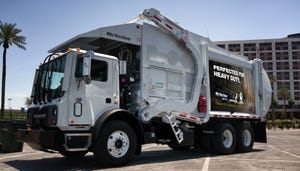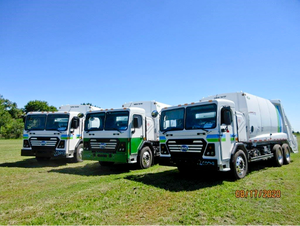Burt's Bees Redoubles Impact Commitments, Aims to Achieve Net Zero Plastic to Nature by 2025
February 18, 2021

DURHAM. N.C.- Burt's Bees announced its 2025 vision to foster a circular economy with commitments to reach Net Zero Plastic to Nature, support a climate-focused future and enhance the livelihoods of more than 50,000 people across its supply chain.
These ambitions are outlined in the brand's 2020 Impact Report, which also details accomplishments from the prior goal period, including: formulas averaging 99.6% Natural Origin; packaging that uses 50% recycled materials on average and is all recyclable curbside or through TerraCycle; maintaining Landfill-Free Operations₁ since 2010; and providing $4.1 million in grants to protect biodiversity and connect people to nature.
"Our focus has long been centered on the wellbeing of people and the natural world. The challenges of the pandemic have only heightened the importance of protecting nature as a resource, for the health of people and all life on Earth,'' said Paula Alexander, Burt's Bees Senior Director of Sustainability. "That's why we've chosen to focus on systemic changes across our supply chain while working toward a circular economy—to enable a more connected and stable relationship between people and nature."
Net Zero Plastic to Nature
Burt's Bees has committed to several large-scale initiatives to reach Net Zero Plastic to Nature₂ by 2025, focusing first on changes within its own value chain—cutting use of virgin packaging materials (plastic and fiber) by 33% (and, by 2030, 50%) and striving toward 100% recyclable, reusable or compostable packaging for all products. These initiatives were developed in alignment with the Ellen MacArthur Foundation's New Plastics Economy Global Commitment, which sets a vision of a circular economy for plastic.
Product innovation will advance this effort, so Burt's Bees is launching its first waste-free product in partnership with Loop. Available early March, the new Truly Glowing Gel Cleanser will come in a reusable glass bottle with waste-free delivery and return. This joins recently launched Rescue Lip Balm, packaged in a new hybrid tube featuring bioresin from upcycled potatoes and post-consumer recycled content.
To improve recycling rates outside of its value chain, Burt's Bees is joining forces with The Recycling Partnership to fund infrastructure improvements in U.S. municipal recycling systems. In addition, Burt's Bees will invest in plastic waste collection and recycling credits that would lead to recovery and recycling of at least as much plastic as their own plastic footprint. Measurement and accounting methodology will align with the recently launched Plastic Waste Reduction Standard, which enables robust accounting, verification and reporting on the impact of projects that increase plastic waste collection and/or recycling.
A Climate Focused Future
Burt's Bees has transitioned to 100% Renewable Electricity as of January 2021, in large part because of a 12-year, 70-megawatt virtual power purchase agreement (VPPA) between their parent company and Enel Green Power, helping to put solar on the grid in Texas. They will also continue to be CarbonNeutral® certified, building on an eight-year commitment to offset carbon emissions, including emissions from their facilities, transportation of raw materials and finished products, and employee travel.
The brand has made climate action commitments and plays an active role in industry networks to advance a climate-focused future, including signing the We Are Still In and America Is All In declarations, and joining Ceres Business for Innovative Climate and Energy Policy (BICEP) and The Climate Collaborative.
Resilient Supply Chain & Communities
Burt's Bees will accelerate efforts to improve sourcing practices and uplift communities who produce their most valued ingredients—such as beeswax and shea butter. They have already impacted over 20,000 livelihoods through a combination of Responsible Sourcing Assessments, third-party audits, and their Global Supply Chain Investment Program. By 2025, they will more than double their efforts—impacting 50,000 livelihoods through:
20 Global Supply Chain Investment Projects that help safeguard access to clean water, support women's and children's empowerment, and promote health, safety and biodiversity.
Responsible Sourcing Assessments and third-party audits to help ensure the wellbeing of workers, including upholding human rights along with the highest health, safety and labor standards and practices, as well as business ethics and environmental protection.
To date, Burt's Bees has visited 115 sites in 25 countries to trace and monitor raw materials—including almost all wax (96%) and butter (97%) sources—and nearly half of all of directly purchased wax, butter and oil sources combined globally. Shannon Hess, Associate Director of Responsible Sourcing states, "As a founding member of Global Shea Alliance, our investments have supported women in shea through new facilities, training programs, and cooperative registration in West African Shea communities. And though Burt's Bees sources most of its mica domestically, we've also helped establish the Responsible Mica Initiative, and worked with partners to develop the Sustainable Mica Policy and Framework Vision to improve supply chain practices in India."
Alexander explains, "We envision a world where people are doing well by nature and for nature, without compromise. This is the legacy of our founders who prized nature for its restorative benefits and to this day help preserve wilderness for future generations."
To read about these accomplishments and more, see Burt's Bees 2020 Impact Report
You May Also Like


